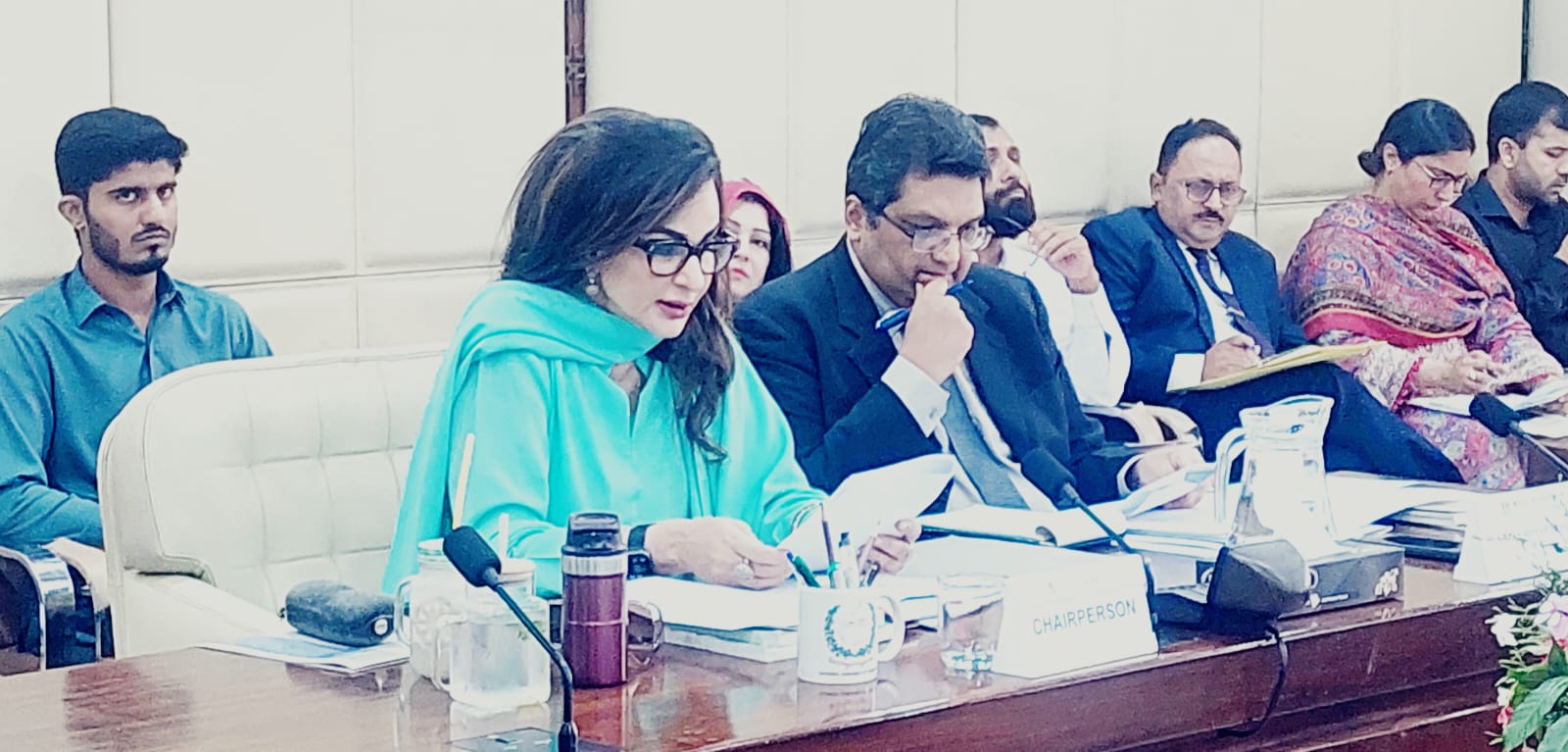 Islamabad, September 17, 2025 (Kamran Raja):Chairing a meeting of the Senate Standing Committee on Climate Change, Senator Sherry Rehman strongly urged the government to immediately channel Benazir Income Support Programme (BISP) funds to nearly three million flood-affected people across the country. She emphasized that this model had been successfully implemented in 2022 and should not face delays now when millions are in urgent need of relief.
Islamabad, September 17, 2025 (Kamran Raja):Chairing a meeting of the Senate Standing Committee on Climate Change, Senator Sherry Rehman strongly urged the government to immediately channel Benazir Income Support Programme (BISP) funds to nearly three million flood-affected people across the country. She emphasized that this model had been successfully implemented in 2022 and should not face delays now when millions are in urgent need of relief.
“People facing homelessness, food insecurity, and disease after the floods must be compensated without delay. Instead of considering mini budgets, the government should be mobilising available international support, just as it did in 2022, when timely BISP transfers provided critical relief,” Senator Rehman said. The Committee endorsed her call.
The Committee also directed the immediate mapping of Pakistan’s waterways, blockages on the Indus and its tributaries, and the development of affordable and effective water storage solutions.
During the meeting, the NDMA Chairman briefed that the current floods have claimed 998 lives, left 1,062 injured, and displaced nearly 300,000 people nationwide. Over 2,000 relief camps are operational, with military support for rescue operations. NDMA further reported that April 2025 was the hottest April in 65 years, with erratic weather patterns intensifying Pakistan’s climate vulnerability.
Senator Rehman stressed that detailed data on affected populations must be compiled and shared urgently, along with improved relief camp standards, provision of clean water, electricity, healthcare, and a plan for permanent housing.
Turning to the Glacial Lake Outburst Flood (GLOF-II) project in Gilgit-Baltistan, the Committee expressed concern over what Senator Rehman described as “glacial slow governance.” Despite Pakistan being ranked among the most climate-vulnerable countries, only 15% of GLOF-II funds have been spent on early warning systems since 2017, while administrative costs consume 30% of the budget. Out of 48 high-risk valleys, only 24 have received coverage, with systemic delays continuing to undermine progress.
“Communities in Gilgit-Baltistan are paying the price of procurement delays and poor coordination. Glaciers are melting, flash floods are rising, yet frontline resilience remains dangerously underdeveloped,” Senator Rehman noted. She announced that public hearings will soon be held in GB to ensure transparency and inclusion of local voices.
The Committee also reviewed alarming findings on water quality in Rawal and Simly Dams. Reports revealed that Rawal Dam has been declared 100% unsafe due to severe contamination, with 62% of water found unfit for drinking even after filtration. Senator Rehman criticised the concealment of critical data, stating:
“When surface water is unsafe at source, filtration becomes meaningless. Transparency in water quality reporting is non-negotiable. We are here to audit your work, not remain silent spectators.”
She directed urgent measures to secure Rawal and Simly Dams, given their critical role in supplying drinking water to Islamabad and Rawalpindi.
Concluding the meeting, Senator Rehman remarked:
“Pakistan faces climate catastrophes every year. Relief must not be delayed, governance cannot remain this slow, and resources cannot be consumed by administration instead of frontline action. Whether it is flood relief, glacial melt, or drinking water safety — urgent course correction is the only way forward.”
The meeting was attended by Senators Bushra Anjum Butt, Manzoor Ahmed Kakar, Syed Waqar Mehdi, Naseema Ehsan, and Qurrat ul Ain Marri (virtually), alongside NDMA and CDA chairmen, UNDP representatives, and officials from MoCC&EC.